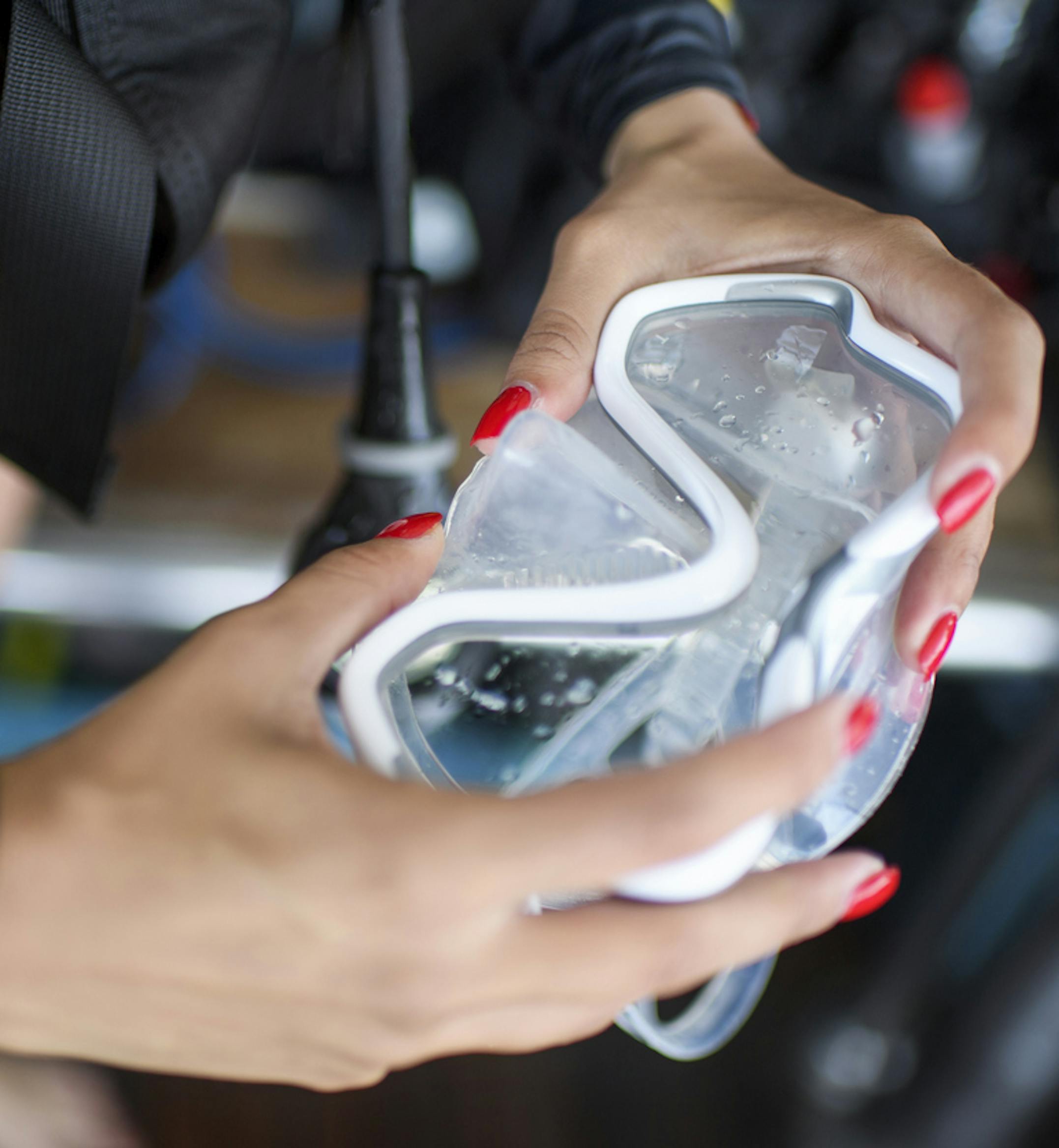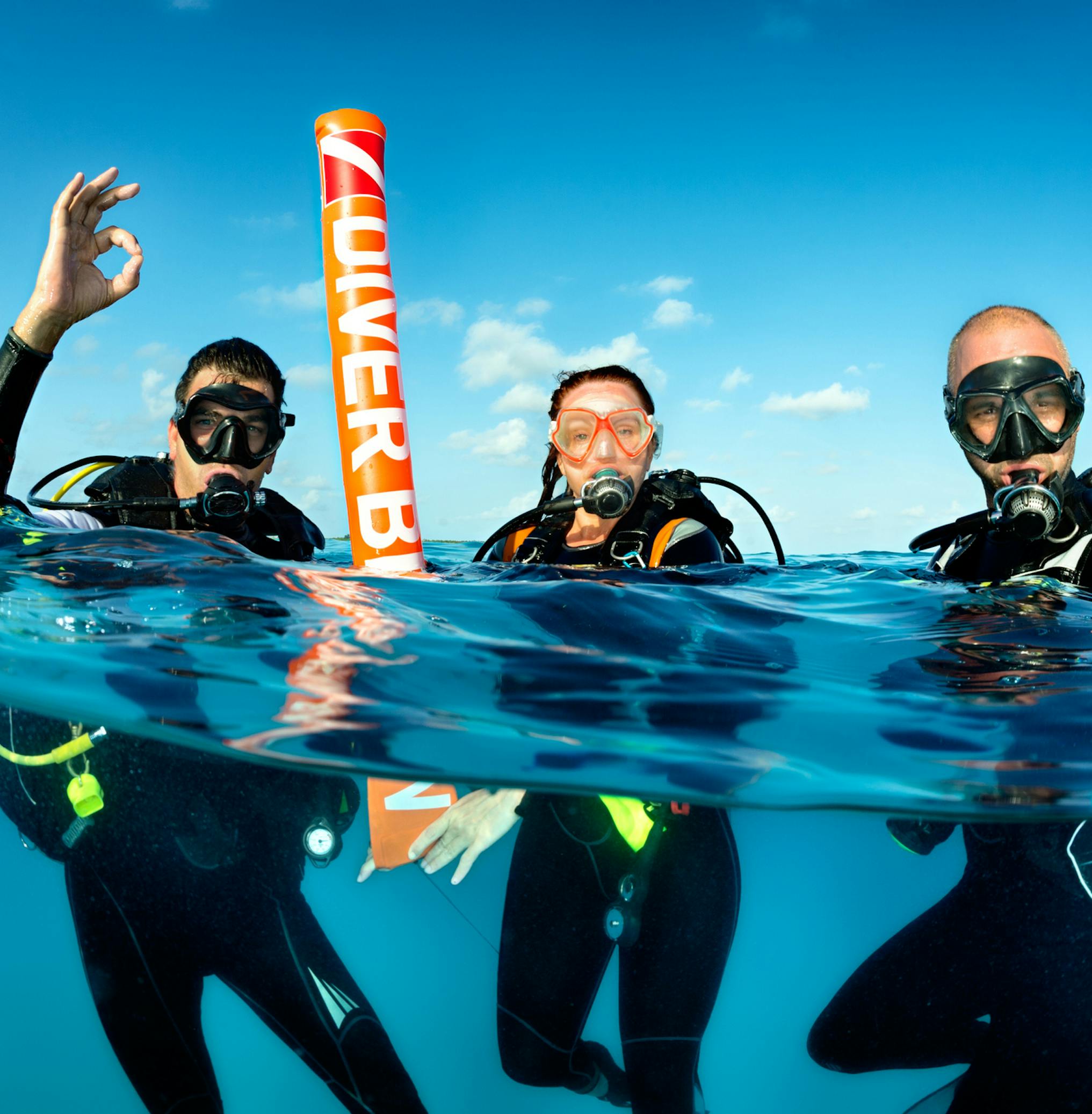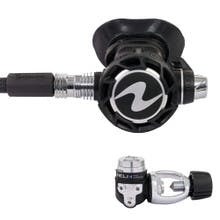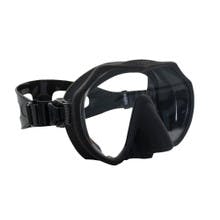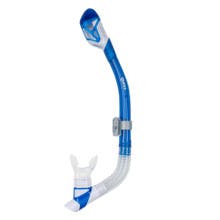Here’s some gear that will need a little extra attention, mostly because these are quite complex mechanisms and they’ll need to be serviced at least annually (*annually is the usual check up time for most of these, some may be longer, some shorter, depending on the frequency that you dive and the specific gear you’re working with).
Your BCD: Like your other gear, you’ll need to rinse your BCD with fresh water after you dive. But you’ll also need to drain the inside of it as well the outside. Here’s how: flush fresh water into the bladder through the inflator valve (hold the deflate button down while doing this). Orally inflate the BC and give it a good shake to get the water into as many places as possible within. Drain the water through the dump valves and, for good measure, repeat the interior cleaning process once more. Then, inflate and deflate the BCD as quickly as possible to eliminate as much interior water as you can. Hang it to dry in a cool place partially inflated to keep inside pieces from sticking together. Remember, your BCD needs to be serviced occasionally, too. Figure out when that is and make sure you have a servicing plan for it.
Pro tip: The only thing aside from fresh water you should ever use in your BCD is BCD specific cleaner. BCD cleaner prevents salt crystals from forming which can harm the BCD bladder, inflator, and dump valves. Other chemicals could ruin your equipment.
Your Regulator: When you purchase a new regulator and look through the reading material that comes with it, you’ll notice that the manufacturer has explicitly stated how often you’ll need to have it serviced (for safety and for warranty’s sake). Back in the day, a regulator servicing would be recommended at least once a year. But now that regulators have started to excel in their technology and become more durable, some specific regulators have extended their service minimum to every two years (again, check with your specific regulator brand and model to find out when that minimum date is for you).
Did you know? When your regulator gets serviced, the technician will disassemble it, check the individual parts, reassemble it, and test its performance. Pro tip is to save ALL of your service and warranty forms. The record can help if there is any need to do a warranty claim on the gear.
Your Dive Computer: This bit of gear may be easy to rinse after a dive, but you’ll need to get it serviced every one or two years for calibration and a battery change to make sure it’s accurate and safe to use. Pro tip for computers with user changeable batteries, always use a small bit of silicone grease on the O-ring when doing the swap.


